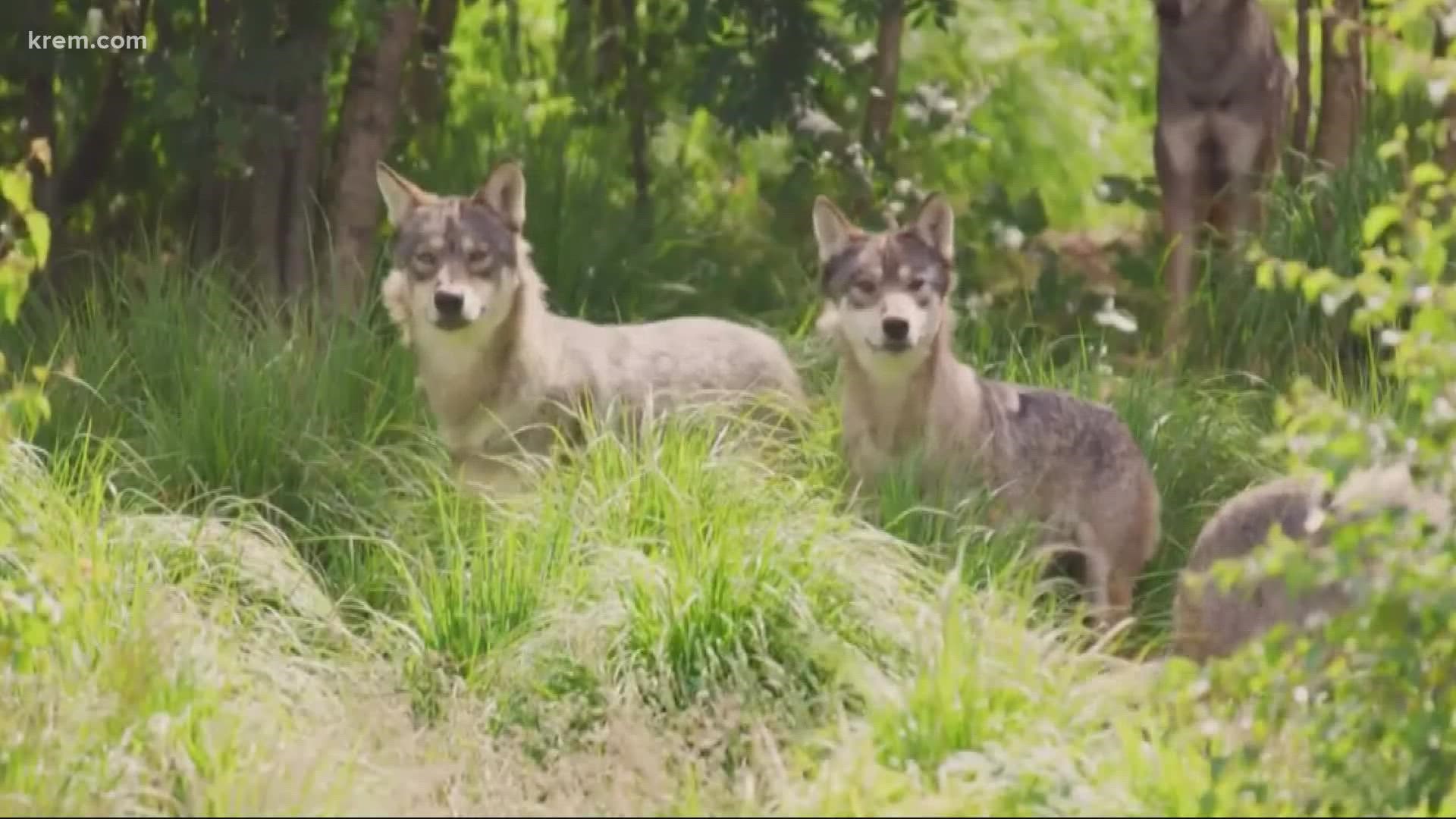SPOKANE, Wash. — For some conservationists, the fight is on to put gray wolves back on the federal endangered species list after President Donald Trump lifted protections for the animals before he left office in 2020.
President Joe Biden has faced increasing pressure to reverse the Trump administration's decision, though he is sticking by it for now. Wolves are still endangered in Washington but not in neighboring Idaho, and many cattle ranchers say it's putting them at a distinct disadvantage.
Ron Eslick, who lives in Ferry County, Washington, is just about ready to hang up his ranching hat. What was his herd of 40 cattle has been reduced to 11 over the past five years.
Wolf packs have been an ongoing challenge for Eslick's small, family-run operations for years. Far Northeast Washington remains home to the vast majority of the state's wolf packs, with at least 132 known wolves in total.
KREM 2 first met Eslick in 2018, as he led a tour of the U.S. Forest Service grazing allotment behind his property. Eslick's family has held the rights there more than 30 years.
Eslick said wolves were not a problem until the last decade. Since about 2010, he said he's lost cattle to wolves almost every year — a financial loss of thousands of dollars.
Across the state line in Idaho, there are even more wolves — as estimated 1,500 — living under very different rules.
Liz Wood is another family-based cattle rancher outside of Bonners Ferry, Idaho. She said it's not an easy lifestyle but living in Idaho does make it less difficult. Wood said she has never lost a cow to wolves in her decades of ranching.
Hutting and trapping wolves is illegal in Washington, but it's allowed in Idaho. State leaders recently announced they would make available up to $200,000 to be divided into payments for hunters and trappers who kill wolves in the state through next summer.
"I think our atmosphere in Boise, where a lot of our legislators have an agricultural background...that makes Idaho pretty lucky," Wood said.
Mike Ripatti also lives outside of Bonners Ferry, just a few miles from the Canadian border. He said ranching is no longer just about cows.
"It's getting so you have to pay more attention to politics. You have to be involved," Ripatti said.
Conservations agree that wolf management is more political than ever.
And conservationists agree -- wolf management is more political than ever.
When Idaho Governor Brad Little in May allowing up to 90% of the state's wolf population to be killed, it drew a firestorm of criticism.
"This is not about social tolerance. This is not about even hunting and trapping. It's truly about exterminating a population of animals," Chris Bachman, a conservationist who used to work for the Lands Council in Idaho. Bachman said he and his group are hoping to take on what he calls a "more holistic approach" to wildfire preservation.
Bachman also believes what happens to wolves in Idaho could soon have a direct, negative impact on ranchers in Washington.
"We still have wolves coming in from Idaho that are feeding the wolf population in Northeast Washington. If you take that away, that source of wolves coming in, the number of wolves that are going to be there to move West where we need to have them go, is decreasing," he added.
In order for Washington to remove wolves from the endangered species list and lift some of the rules that protect them, pack numbers have to grow beyond Northeast Washington. The state Department of Fish and Wildlife acknowledges the species is exceeding recovery goals in Northeast Washington, but the goal is to see consistent pack numbers in all four recovery regions of the state.
For ranchers like Ron Eslick, it's no longer worth the fight.
"I wish they would come out and see what actually is happening," he said.
Eslick said he doesn't use the grazing allotment behind his property anymore, instead keeping his cows in a fenced pasture. It's more expensive but he said it's the only way to truly protect his herd.
Do you have a tip for our KREM 2 investigators? Send an email to investigators@krem.com.

